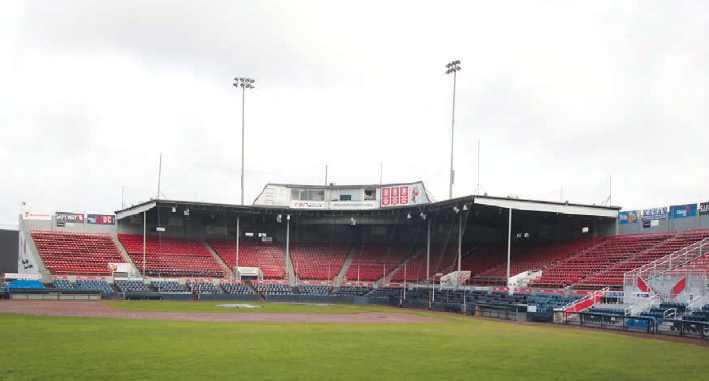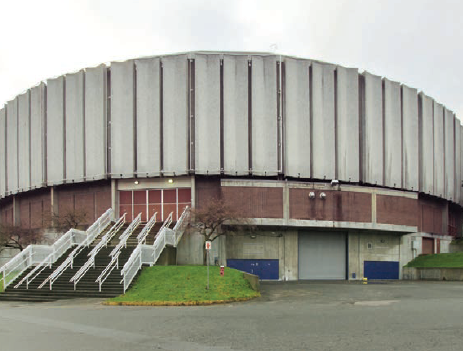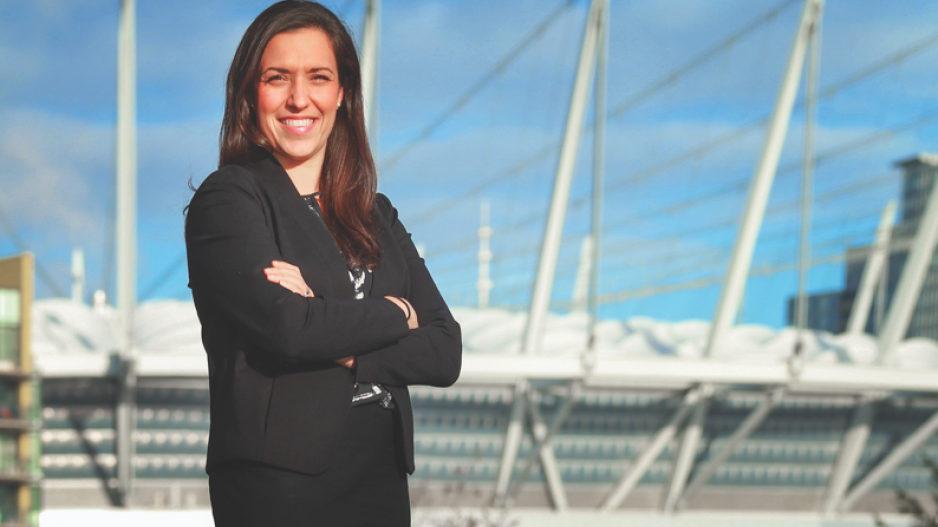Almost six years after the 2010 Winter Olympics, Vancouver is finally plotting a long-term strategy to net more sporting events.
Vancouver city council voted December 10 to spend $1 million over the next two years to fund the Sport Hosting Vancouver Partnership. Another $2.15 million cash and in-kind will be coming from partners Vancouver Hotel Destination Association (VHDA), Tourism Vancouver, the BC Pavilion Corp. (PavCo) and the University of British Columbia.
Sport Hosting Vancouver wants to create a marketing plan, become the central point of contact for rights holders and develop event planning, management and delivery systems.
“This is something that is the first real collaborative initiative since the 2010 Games,” said Russ Cowan, executive director of the VHDA, a coalition of 35 downtown hotels.
An estimated 200,000 professional and amateur sporting events happen annually across the country, and Statistics Canada estimated that sport tourism was worth $5.2 billion in 2014.
A November report from Sport Hosting Vancouver manager Michelle Collens that went to council on December 10 said Vancouver has lacked co-ordination, strategy and a funding framework. The city instead relied on an ad hoc approach to bidding on and hosting events. The 2013 Vancouver Tourism Master Plan pinpointed sports as a visitor magnet, yet Tourism Vancouver couldn’t do it alone.
Enter Sport Hosting Vancouver. It was created as a city hall office during Penny Ballem’s tenure as city manager and was based on the sport commission model employed in cities like Seattle and Denver.
“[Destination marketing organizations] need to establish partnerships that will provide the event assistance needed,” according to a report from the U.S. National Association of Sports Commissions. “It is the sports commission that offers everything possible in terms of what it takes to obtain and produce a sports event.”
Collens, a former sports business development manager at PavCo, said the strategy is about attracting marquee events, not necessarily mega-events.
“It’s a proactive opportunity which Vancouver is seeking events to come to it. It’s definitely going to help the image,” Collens said. “Being the destination that we are, people were just knocking on our door, and we didn’t know how to respond.”

(Image: Vancouver’s Nat Bailey Stadium and Pacific Coliseum (below) are among the many sports venues in the city that could be used to host potentially lucrative mid-level sports events | Rob Kruyt)

The University of Florida’s The Influence of Consumer’s Event Quality Perception on Destination Image report found “strong evidence that cities considering the staging of such a mega-event [like the Olympics] must anticipate a significant rate of awareness and image decay, and take steps to counter it, if they wish to remain visible and competitive in the international marketplace.”
Only 16 months after hosting the Winter Olympics, Vancouver had a sudden moment of image decay and negative awareness with the 2011 Stanley Cup riot. Yet, events like four Davis Cup ties since 2012, Grey Cups in 2011 and 2014 and the FIFA Women’s World Cup final last summer helped keep the city on the events map.
The Women’s World Cup was particularly important, as the influx of American soccer fans helped Vancouver reach an estimated nine million hotel stays in 2015, eclipsing the previous year’s record of 8.978 million.
Collens conceded that Vancouver can’t match the budgets of destinations in Russia and the Middle East. Vancouver is instead focusing on mid-level events, including those that spur large participation numbers.
The 2013 plan recommended Vancouver leverage its event experience and infrastructure and create or attract new events in the first and fourth quarters. That is starting to happen.
The first major event of 2016’s first quarter is the March 12 to 13 Canada Sevens, a stop on the World Rugby HSBC Sevens Series, at BC Place.
Scheduled for 2017’s fourth quarter is the Nike-sponsored Vancouver Showcase NCAA basketball tournament at the Vancouver Convention Centre. The U.S. Thanksgiving week event will feature eight men’s and eight women’s teams.

“We have the opportunity to pick key sports events and opportunities in areas of the calendar where we have need, where we have soft periods, where we have fewer tourists in town,” said Tourism Vancouver CEO Ty Speer, a former London 2012 Olympics and Glasgow 2014 Commonwealth Games executive. “Sports are a driver and they bring people here. It creates a unique and immediate need to visit, so it moves Vancouver off the list of, ‘Yes, I want to get there one day,’ to ‘I want to go now!’”
The 2016 calendar includes the Canadian Interuniversity Sport Men’s Basketball Final 8 (March 17 to 20), BMO Vancouver Marathon (May 1), Little League Canadian Championship (August 4 to 13) and the Americas Masters Games (August 26 to September 4).
Vancouver city hall contracted Sport BC to produce Americas Masters Games with its Sport Hosting Vancouver partners. They hope 7,500 amateur athletes aged 29 and up will descend on the city to compete in 27 sports. The International Masters Games Association boasts that its events attract well-educated, wealthy visitors, particularly in the 45-to-54 bracket, who play for fun, not country and tend to bring their families to explore the host region. •




